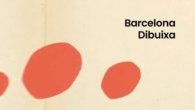
Palestine Cinema Days 2025 | Activity
Since 2023, MACBA has been part of an international initiative in solidarity with the Palestine Cinema Days film festival, which cannot be held in Ramallah due to the ongoing genocide in Palestinian territory. During the first days of November, organizations from around the world have agreed to coordinate free screenings of a selection of films from the festival.
Al-makhdu’un [The Dupes] (1972), is a film based on a novel by Ghassan Kanafani. It follows the story of three Palestinian refugees from different generations who, after the Nakba, try to escape from Lebanese refugee camps to find a better life in Kuwait, which is in the midst of an oil boom, representing a kind of “promised land”. The three men end up meeting in the port of Basra, in Iraq, from where they attempt to cross the desert hidden in the empty tank of a lorry. Set in the late 1950s, the story alternates between past and present to show their lives, losses and hopes.
The festival Palestine Cinema Days is an annual event organized by Filmlab Palestine that aims to raise Palestine’s profile on the map of the world film industry and the international film scene. Filmlab Palestine premiered the first edition of Palestine Cinema Days in 2014, using the name Cinema Days, and since then it has become an annual event.
In 2023, Filmlab was forced to cancel the event in Ramallah due to Israeli attacks, and decided as an alternative to decentralize the proposal, spreading it out into various hosting venues around the world. Since then, the number of participating host cities has continued to grow.
This activity is linked to the audiovisual series Visions of Panafrica. Activity organized in collaboration with Filmlab Palestine.
Programme
19:00 – 19:30 h
Presentation by Shahd Abusalama
19:30 – 21:20 h
Screening of Al-makhdu’un [The Dupes]Tawfik Saleh, 1972, Syria, 107′, Spanish subtitles
9:20 p.m. – 9:45 p.m
Q&A with Shahd Abusalama (in English with simultaneous translation)
Organized by
Funded by the European Union. Views and opinions expressed are however those of the author(s) only and do not necessarily reflect those of the European Union or the European Education and Culture Executive Agency (EACEA). Neither the European Union nor EACEA can be held responsible for them.











